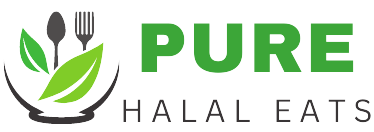
The Future of Halal Food: Trends and Innovations

As the global halal food market continues to expand, evolve, and adapt to changing consumer preferences and technological advancements, it’s crucial to explore the exciting trends and innovations shaping the future of halal cuisine. From sustainable sourcing practices to cutting-edge technologies, the future of halal food promises to be both delicious and sustainable.
1. Ethical Sourcing and Sustainability: In an era of increasing awareness about ethical and environmental concerns, consumers are demanding greater transparency and accountability in the sourcing of halal food products. The future of halal food will see a greater emphasis on sustainable and ethically sourced ingredients, including organic produce, pasture-raised meats, and eco-friendly packaging options. Businesses that prioritize sustainability and environmental stewardship will gain a competitive edge in the halal food market.
2. Tech-Driven Convenience: Technological innovations are revolutionizing the way consumers access and experience halal food. From online ordering platforms and mobile apps to virtual dining experiences and AI-driven food recommendations, technology is making it easier than ever for consumers to discover, order, and enjoy halal cuisine. The future of halal food will see continued advancements in technology, offering greater convenience, accessibility, and personalization for halal food enthusiasts around the world.
3. Health and Wellness: With an increasing focus on health and wellness, consumers are seeking out halal food options that not only taste delicious but also support their dietary and lifestyle goals. The future of halal food will see a rise in nutritious and functional halal foods, including plant-based alternatives, gluten-free options, and products fortified with vitamins and minerals. Businesses that cater to the growing demand for healthy and wholesome halal foods will thrive in the years to come.
4. Culinary Innovation and Fusion Cuisine: Halal food is known for its rich diversity of flavors and influences from around the world. The future of halal food will see continued innovation and experimentation in the culinary world, with chefs and food entrepreneurs pushing the boundaries of traditional halal cuisine. From fusion dishes that combine halal flavors with global culinary trends to innovative cooking techniques and flavor pairings, the possibilities for halal food are endless.
5. Halal Tourism and Travel: As the halal tourism industry continues to grow, so too does the demand for halal food options in travel destinations around the world. The future of halal food will see an expansion of halal-friendly dining options in hotels, resorts, and tourist destinations, catering to the needs of Muslim travelers and halal food enthusiasts. Businesses that embrace halal-friendly practices and cater to the unique dietary requirements of Muslim travelers will benefit from the lucrative halal tourism market.
Conclusion: The future of halal food is bright and promising, with exciting trends and innovations reshaping the industry in profound ways. From sustainable sourcing practices to tech-driven convenience and culinary creativity, the halal food market is evolving to meet the needs and preferences of a diverse and discerning consumer base. By embracing these trends and staying ahead of the curve, businesses can thrive in the dynamic and ever-growing world of halal cuisine.